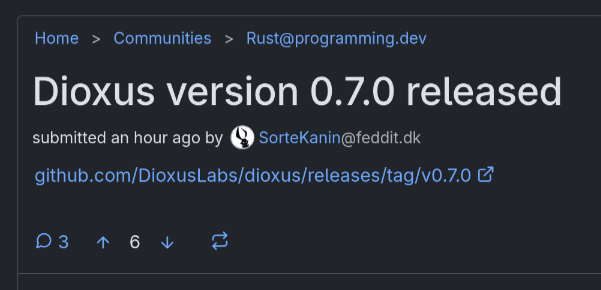I think it might be nice if such posts included some background
Build for web, desktop, and mobile, and more with a single codebase. Zero-config setup, integrated hot-reloading, and signals-based state management. Add backend functionality with Server Functions and bundle with our CLI.
I don’t think everyone is up to date on every Rust library that exists







It would be nice if some part of it was here